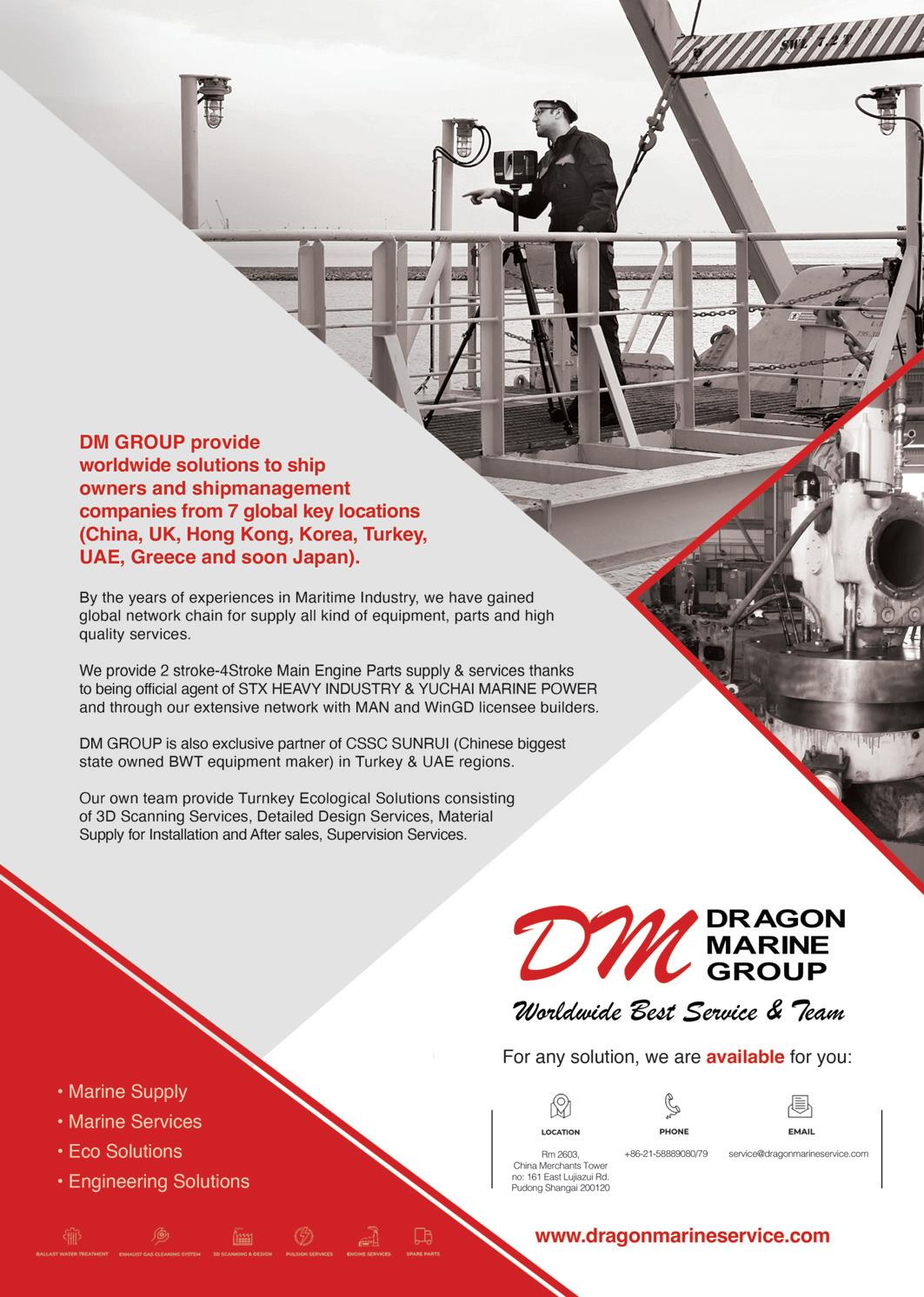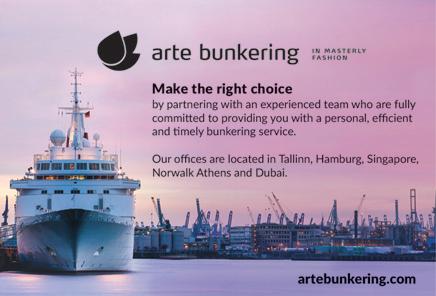






Seatrek is a leading dry bulk carrier and vessel owner in the marine shipping industry. With over 20 years’ experience, the company serves more than 100 destinations. Founder and Managing Director, Asifur Chowdhury is an expert when it comes to the shipping industry. He discussed Seatrek’s extensive history and his hopes for the future in conversation with Phil Nicholls and Imogen Ward.
ANaccumulation of Founder and Managing Director
Asifur Chowdhury’s hard work and experience, Seatrek began in 1999 Originally working for Atlas, his father’s first ship-owing company in Bangladesh, Mr Chowdhury decided to create his own business venture in Singapore.
He maintained a strong connection to his Bangladeshi roots, working closely with several clients within the country as well. Employee numbers at Seatrek at one point sat at 40 in a total of six offices spanning the globe.
Boasting a range of 200-350 operational vessels per year pre-Covid, the company continued to expand its fleet with the addition of three new tankers in 2018. Diversifying its range meant Seatrek was able to enter the tanker market and expand its reach in the shipping industry. However, out of concern for crew safety as well as adverse effects commercially, these numbers were scaled back during the pandemic.

Due to his experience at Atlas and expertise in inland riverine barging experience in Bangladesh, Mr Chowdhury secured several c ontracts with major cement manufacturing companies including Holcim, Cemex, Lafarge and Heidelberge.
Holding a long and prosperous relationship, Holcim and Seatrek’s history began with Holcim’s desire to invest into Bangladesh’s markets, providing its services to the country via Seatrek’s ocean transportation and barging services to Holcim’s cement manufacturing plant. This relationship continued to grow as Seatrek secured its first COA with Holcim. Seatrek also developed a similar partnership with Cemex and as a result, a two-year contract was agreed by the two companies to move cement between Thailand and Bangladesh as the first COA with Cemex.
When Cemex wished to expand export out of their APO Cement plant in Cebu, Philippines, Seatrek confidently applied
its previous experience to the contract. “They had never exported before,” Asifur Chowdhury, Founder and Managing Director of Seatrek said, “so we used our expertise to start the exportation process.
“We actually used the same process that we had previously implemented in Chittagong, which meant we were able to successfully export the cement clinker out of Cebu.”
Mr Chowdhury felt his extensive experience within the shipping industry helped to secure these contracts. His knowledge of Bangladesh was also a crucial aid to Holcim and Cemex’s investment plans.
Seatrek has also completed several joint ventures with Lafarge, chartering and operating vessels for Lafarge’s third-party trades. Focusing again on Bangladesh, Lafarge wanted to expand its market presence within the country.
To penetrate this market, Lafarge felt the need to take a risk and set its clinker prices competitively. Seatrek very nobly offered to offset this risk by investing as a joint-venture scheme. This allowed both companies to share the outcome of the venture – whether the results were positive or not.





Another appeal of choosing to charter with Seatrek is its CQD (Customary Quick Despatch) service. This gives charterers added security when calculating loading and discharging rates which could lead to potential demurrages exposure to charterers. Seatrek has ensured that as shipowners, the charterers would not have to pay demurrage due to Seatrek’s CQD service.
The company’s close relationship with clients is vital to both current and potential future customers, according to Mr Chowdhury: “We have a direct relationship with our clients. That means whenever they have an issue, they can come straight to us.”
The chance to create this kind of relationship exclusively with Holcim Trading occurred in 2000. As the only shipping company trusted to work with Holcim without a shipbroker, Mr Chowdhury felt that this opportunity contributed greatly to Seatrek’s overall success. This relationship continued for 16 years until Holcim and Lafarge merged.
After overcoming challenges relating to the current economic climate, Mr Chowdhury is positive about the future of Seatrek. The company is currently working towards a focus on long-term chartering. Seatrek plans to take on contracts with a minimum of five years’ duration, freeing up time and money for other projects.

One of the projects Mr Chowdhury hopes to complete includes building special barges for Bangladesh. Due to the presence of mangrove swamps, these barges must be custommade. This is to ensure that no dust or debris affects these delicate swamp ecosystems. This customisation, therefore, requires a larger dedication of time and money.
The commitment to longer charters will also allow Mr Chowdhury to focus his attention on more humanitarian efforts outside of shipping.


A major health scare led Mr Chowdhury to feel inspired to give something back to the world. Focusing on several projects, the Founder of Seatrek has set out a plan to dedicate time and money to charitable acts.

Green ship recycling – a method of safely dismantling and disposing of an old ship –is an EU compliance not currently available in the India sub-continent, including Bangladesh. Mr Chowdhury has committed to working with Bangladesh in an attempt to install EU regulations compliance into the country’s scrapyards. The fundamental aim of the project is to reduce harmful waste from decommissioned vessels. This extraordinary accomplishment will mean higher safety standards for all workers within the yards as well as recycling the scrap materials in a green manner.
As an avid food enthusiast, Mr Chowdhury has also invested into Singaporean vertical farming, offering his advice to the business. This has also given him the opportunity to learn more about this innovative way of farming: “I was very impressed,” he said, “the difference between vertical farming and the greenhouse optimisation is very good. It’s completely organic. I was not even aware of the incredible tech that it uses.”
Furthering this exploration into the food and beverage industry, Mr Chowdhury hopes to commit more time to his restaurant. He established his fine dining Spanish restaurant, Binomio, ten years ago to bring the tastes of Spain closer to home.

One of his philanthropic endeavours is his scholarship fund for Bangladeshi students from poor economic backgrounds. This feat will enable these students to go to school and gives them better future prospects. Mr Chowdhury also started an initiative which empowers young women with sewing skills, thereby creating employment opportunities in the country’s garments industry.
Finally, Mr Chowdhury is also invested in keeping young people’s dreams alive. He plans to conceptualise final year projects into reality and reward the creators with 70% free equity of the business. By doing this, he hopes to set the students up with a financial support system and grant them vital experience in the industry.
“Once they graduate and look for jobs,” Mr Chowdhury said, “their dreams often fade away. We want to find those students and see whether we can conceptualise those dreams.” n
